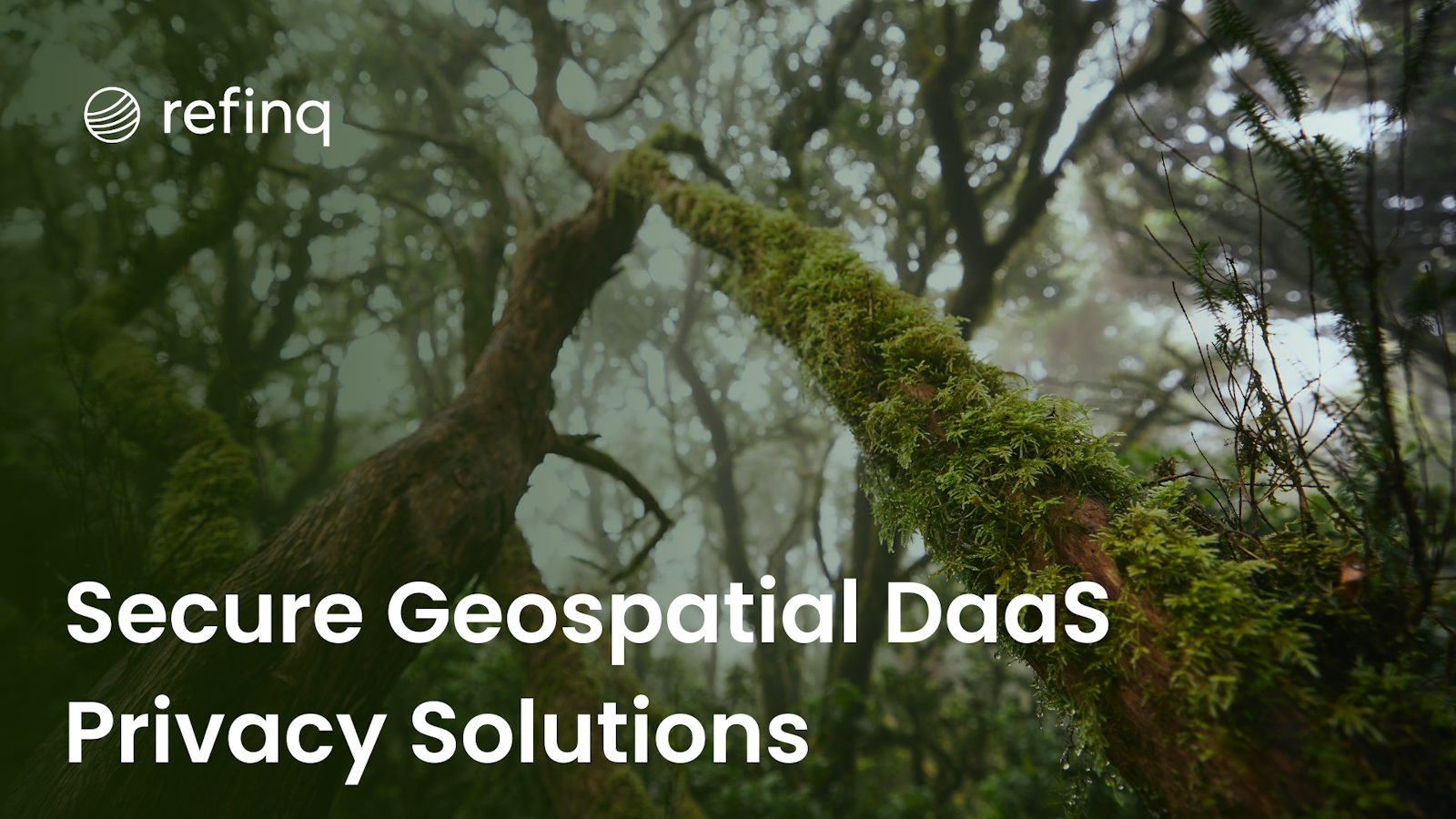

Geospatial Data as a Service (DaaS) has emerged as a crucial tool for businesses seeking location-based insights. While this technology offers immense benefits, it also raises significant concerns regarding data privacy and security. Addressing these challenges is essential for organizations to leverage geospatial data effectively. (Learn more about navigating security challenges in the digital age).
One company at the forefront of providing secure and compliant geospatial solutions is refinq. By offering advanced climate and biodiversity risk assessments, refinq helps enterprises manage environmental risks while ensuring data privacy and security are not compromised. (Discover how refinq empowers businesses).
Geospatial Data as a Service is a cloud-based model that delivers geospatial data and processing capabilities over the internet. It allows organizations to access, analyze, and utilize location-based data without the need for significant infrastructure investments. (Read about delivering value with Geospatial DaaS).
Enhanced Decision-Making: Provides real-time insights for strategic planning.
Cost Efficiency: Reduces overhead by outsourcing data management.
Scalability: Adapts to growing data needs without substantial capital expenditure.
The collection of geospatial data often involves personal information, raising concerns about user consent and data ownership. Companies must ensure they have explicit permission to collect and use this data. (Explore concepts and research directions in geospatial data privacy).
General Data Protection Regulation (GDPR): European regulation that mandates strict data protection protocols.
California Consumer Privacy Act (CCPA): U.S. legislation that enhances privacy rights for consumers.
Non-compliance with these regulations can result in hefty fines and reputational damage.
Sensitive geospatial data is a prime target for cyberattacks. Protecting this data requires robust encryption and security measures.
Implementing access controls and authentication mechanisms is vital to prevent unauthorized personnel from accessing confidential information.
Ensuring the accuracy and reliability of geospatial data is crucial. Data tampering can lead to incorrect analyses and misguided decisions.
Encryption: Use advanced encryption standards (AES) for data at rest and in transit.
Multi-Factor Authentication (MFA): Adds an extra layer of security to user access.
Regular Audits: Conduct security assessments to identify and mitigate vulnerabilities.
Anonymization: Remove personally identifiable information (PII) from datasets.
Consent Management: Obtain and document user consent for data collection and usage.
Transparent Policies: Clearly communicate data handling practices to stakeholders.
Standardized APIs: Utilize APIs that adhere to industry standards for easy integration.
Interoperability: Ensure compatibility with existing systems and software.
Data Standardization: Adopt common data formats like GeoJSON for consistency.
(Learn more about geospatial data privacy and security).
Leveraging AI and ML can enhance data security by detecting anomalies and potential threats in real-time. (Read about privacy-preserving geospatial AI).
Blockchain offers decentralized data storage, enhancing security and transparency in geospatial data transactions. (Understand blockchain's impact on geospatial data).
Implementing best practices is essential to minimize privacy and security issues in Geospatial DaaS. Here are key strategies that organizations can adopt:
Data Classification: Categorize data based on sensitivity levels to apply appropriate security measures.
Policy Enforcement: Establish clear policies for data handling, access, and sharing.
Accountability: Assign data stewards responsible for maintaining data integrity and compliance.
Vulnerability Testing: Perform regular penetration testing to identify security gaps.
Compliance Checks: Ensure adherence to regulatory standards like GDPR and CCPA through periodic audits.
Incident Response Plan: Develop and maintain a plan to respond swiftly to security breaches.
Security Training: Educate employees on the importance of data privacy and security protocols.
Awareness Programs: Implement ongoing initiatives to keep staff informed about emerging threats and best practices.
(Understand the importance of best practices in geospatial data security).
Collect Only Necessary Data: Limit data collection to what is strictly required for business purposes.
Retention Policies: Define clear guidelines on how long data should be stored and when it should be disposed of securely.
External Audits: Engage independent auditors to assess security practices.
Certifications: Obtain certifications like ISO/IEC 27001 to demonstrate commitment to data security.
Legal Compliance: Ensure that data practices comply with all relevant laws and regulations.
Risk Management: Collaborate to identify and mitigate potential legal risks related to data handling.
(Explore concepts and research directions in geospatial data privacy).
refinq is a pioneering SaaS platform that prioritizes data privacy and security in its advanced climate and biodiversity risk assessments. By processing over 2.5 billion data points from earth observations and climate models, refinq provides comprehensive risk profiles while ensuring compliance with international regulations. (Explore refinq's climate solutions).
Regulatory Compliance: Aligns with frameworks like TNFD, CSRD, ESRS, and SBTN to meet legal requirements.
Data Security Measures: Implements robust encryption and access controls to protect sensitive information.
User-Friendly Integration: Offers standardized APIs and data formats for seamless integration with existing systems.
Actionable Insights: Translates complex environmental data into strategies, aiding businesses in making informed decisions without compromising data integrity.
By choosing refinq, businesses can navigate environmental risks confidently, knowing their data privacy and security are in capable hands. (Discover refinq's biodiversity solutions).
Addressing privacy, security, and integration challenges in Geospatial DaaS is imperative for businesses aiming to leverage location-based data effectively. Implementing robust security protocols, ensuring data privacy, and utilizing advanced technologies are essential steps toward this goal. Platforms like refinq not only provide advanced geospatial analytics but also prioritize data protection and compliance, enabling organizations to harness the full potential of geospatial data securely.
Geospatial Data Privacy: Navigating Security Challenges (Infosys BPM)
Security and Privacy for Geospatial Data: Concepts and Research Directions (ResearchGate)
Advanced Topics in Geospatial Privacy and Security (Springer)